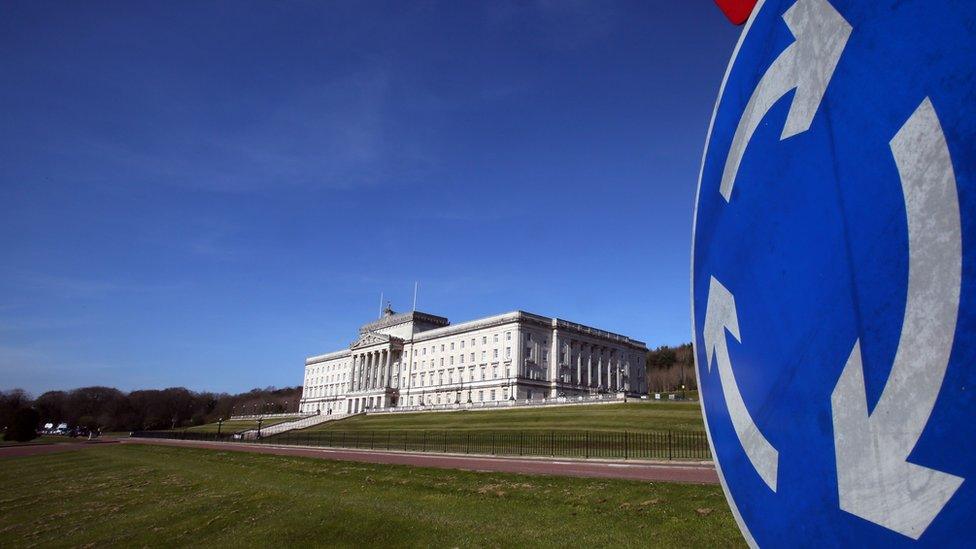Corporation tax: Commission proposed to examine NI tax powers
- Published

Stormont's finance minister is proposing an independent commission to examine the case for more devolved tax powers.
The NI Executive has had the power to cut corporation tax since 2015.
It has never used that power because public finance rules mean it would lead to a cut in the block grant which funds public services.
Conor Murphy wants a wide ranging review to assess how different tax policies could work together.
: "I shortly intend to establish a fiscal commission to examine the executive's tax varying powers. Its report will provide a comprehensive picture of the costs and benefits of further fiscal devolution measures."
Northern Ireland is the only one of the devolved regions not to have conducted a comprehensive review of this sort.
In Wales, the Holtham Commission reported in 2010 and in Scotland the 2014 Smith Commission led to the devolution of some income tax powers.
A Northern Ireland review could examine issues such as whether a cut in corporation tax could be paid for by raising income tax.
Conor Murphy wants an independent fiscal council to assess executive budgets
In 2015, the Northern Ireland Council for Voluntary Action (NICVA) which suggested that income tax, stamp duty, air passenger duty and landfill tax, could be potential candidates for devolution.
It also concluded that the only policy which would feasibly raise significant amounts of extra revenue was to increase the basic rate of income tax.
Separately, Mr Murphy is also planning to establish an independent fiscal council which will assess the executive's budgets.
Establishing such a body was between the Executive and the UK government.
It would have a similar remit to the Scottish Fiscal Commission.
Related topics
- Published27 November 2014